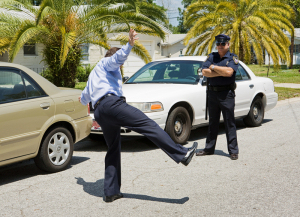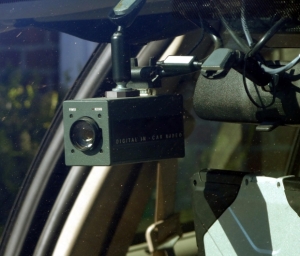 Next week, Ohioans will vote on Issue 3: a state constitutional amendment to legalize marijuana for medicinal and personal use*. If marijuana use is legalized in Ohio, more drivers will face charges of operating a vehicle under the influence of marijuana. Ohio’s OVI-marijuana laws raise many questions: How long does a marijuana high last? Does marijuana impair driving ability? Do blood and urine test results correlate with impaired driving ability? Are Ohio’s OVI-marijuana laws Constitutional? This article addresses the first question by discussing the duration of marijuana effects.
Next week, Ohioans will vote on Issue 3: a state constitutional amendment to legalize marijuana for medicinal and personal use*. If marijuana use is legalized in Ohio, more drivers will face charges of operating a vehicle under the influence of marijuana. Ohio’s OVI-marijuana laws raise many questions: How long does a marijuana high last? Does marijuana impair driving ability? Do blood and urine test results correlate with impaired driving ability? Are Ohio’s OVI-marijuana laws Constitutional? This article addresses the first question by discussing the duration of marijuana effects.
Articles Posted in DUI/OVI Constitutional issues
Miranda And Ohio DUI/OVI Cases: To Remain Silent, You Must Talk
 One of the most frequently asked questions for criminal defense attorneys is about the impact of Miranda warnings. A previous article in this blog explained the holding of the Miranda case. After the publication of that article, the United States Supreme Court decided a Miranda-related case which affects investigations in Ohio DUI/OVI cases.
One of the most frequently asked questions for criminal defense attorneys is about the impact of Miranda warnings. A previous article in this blog explained the holding of the Miranda case. After the publication of that article, the United States Supreme Court decided a Miranda-related case which affects investigations in Ohio DUI/OVI cases.
Failure To Provide Evidence Impacts Ohio DUI/OVI Cases
 DUI/OVI cases are litigated within a framework of rules. Some of those rules regulate the exchange of evidence between the prosecution and the defense. That exchange of evidence is the ‘discovery’ process. The rules for discovery are found in state and federal law, and the intricacies of the rules are fleshed-out in court decisions interpreting the rules. A prosecutorial violation of the discovery rules may significantly impact a DUI/OVI case.
DUI/OVI cases are litigated within a framework of rules. Some of those rules regulate the exchange of evidence between the prosecution and the defense. That exchange of evidence is the ‘discovery’ process. The rules for discovery are found in state and federal law, and the intricacies of the rules are fleshed-out in court decisions interpreting the rules. A prosecutorial violation of the discovery rules may significantly impact a DUI/OVI case.
Ordeal Shows Presumption Of Innocence Is Crucial In Ohio DUI/OVI Cases
 When authorities found Donna Wardell in her Chevrolet Impala, the car was upside-down, held in the air by part of the utility pole she just hit (see the story at app.com). Medics pulled her out of the car through the windshield and rushed her to the hospital. The medical team determined the crash was the result of a seizure caused by a brain tumor. Wardell did not know about the tumor: she learned of it in the hospital. She later learned something else: she was being charged with DWI because, when the medics removed Wardell from her car, they observed the odor of alcohol.
When authorities found Donna Wardell in her Chevrolet Impala, the car was upside-down, held in the air by part of the utility pole she just hit (see the story at app.com). Medics pulled her out of the car through the windshield and rushed her to the hospital. The medical team determined the crash was the result of a seizure caused by a brain tumor. Wardell did not know about the tumor: she learned of it in the hospital. She later learned something else: she was being charged with DWI because, when the medics removed Wardell from her car, they observed the odor of alcohol.
Who Is Protecting Our Constitution Now?
 It’s Independence Day. We’re celebrating our freedom, and we’re celebrating everything which makes the U.S.A. a great nation. One thing which makes this nation great is it’s ultimately governed by laws, not people. The framework for our laws is the Constitution, and the part of the Constitution which guarantees much of the freedom we’re celebrating today is the Bill Of Rights. The founders of this nation put their lives on the line for that freedom. Soldiers in our military protect the country and preserve our freedom from foreign oppression. But who is protecting our freedom from domestic oppression and preserving the liberties promised by the Bill Of Rights?
It’s Independence Day. We’re celebrating our freedom, and we’re celebrating everything which makes the U.S.A. a great nation. One thing which makes this nation great is it’s ultimately governed by laws, not people. The framework for our laws is the Constitution, and the part of the Constitution which guarantees much of the freedom we’re celebrating today is the Bill Of Rights. The founders of this nation put their lives on the line for that freedom. Soldiers in our military protect the country and preserve our freedom from foreign oppression. But who is protecting our freedom from domestic oppression and preserving the liberties promised by the Bill Of Rights?
Stop For Minor Offense Outside Officer’s Jurisdiction Is Unlawful
 Suppose you are driving around Columbus on I-270 and an officer pulls you over for speeding. The officer gets out of his cruiser and walks up to your car. When the officer reaches your window, you see on his uniform he is from the Cincinnati Police Department. ‘That’s odd’, you think, ‘why is an officer from Cincinnati making a traffic stop in Columbus?’ Good question. A better question is this: does that traffic stop violate your Constitutional rights?
Suppose you are driving around Columbus on I-270 and an officer pulls you over for speeding. The officer gets out of his cruiser and walks up to your car. When the officer reaches your window, you see on his uniform he is from the Cincinnati Police Department. ‘That’s odd’, you think, ‘why is an officer from Cincinnati making a traffic stop in Columbus?’ Good question. A better question is this: does that traffic stop violate your Constitutional rights?
When Are Police Permitted To Give Field Sobriety Tests?
 Imagine you are driving home on a central Ohio freeway after a late dinner and you are pulled over by a police officer. The officer says you were stopped for failing to use your turn signal when you changed lanes. The officer announces he smells the odor of alcohol and asks if you have been drinking. You did have a glass of wine with dinner. The officer then asks you to get out of the car for some field sobriety tests to “make sure you’re okay to drive”. Under what circumstances is the officer justified in doing this?
Imagine you are driving home on a central Ohio freeway after a late dinner and you are pulled over by a police officer. The officer says you were stopped for failing to use your turn signal when you changed lanes. The officer announces he smells the odor of alcohol and asks if you have been drinking. You did have a glass of wine with dinner. The officer then asks you to get out of the car for some field sobriety tests to “make sure you’re okay to drive”. Under what circumstances is the officer justified in doing this?
Supreme Court Addresses Use Of Drug Dogs At Traffic Stops
If a police officer stops you for a minor traffic violation, how long should the officer be permitted to detain you? Suppose the officer issues you a ticket or a warning for the minor traffic violation and then says he wants you to wait while he has a drug dog sniff your car? What do you say? If you say no, can the officer do it anyway?
Dash Cam vs Officer Testimony In Ohio DUI/OVI Cases
 If an officer’s testimony about a traffic stop is not corroborated by the officer’s cruiser video, how do judges rule on the justification for a traffic stop? Once a judge makes a ruling, under what circumstances might that ruling be overturned by an appellate court? A recent case decided by the Tenth District Court of Appeals in Columbus, Ohio illustrates the discretion judges are given regarding evidentiary issues in OVI motion hearings.
If an officer’s testimony about a traffic stop is not corroborated by the officer’s cruiser video, how do judges rule on the justification for a traffic stop? Once a judge makes a ruling, under what circumstances might that ruling be overturned by an appellate court? A recent case decided by the Tenth District Court of Appeals in Columbus, Ohio illustrates the discretion judges are given regarding evidentiary issues in OVI motion hearings.
Recent Erosion Of Fourth Amendment Rights May Impact Ohio DUI/OVI Cases
Suppos e an officer detains a person for violating a traffic law and it turns out the person really didn’t violate the law: the officer was simply mistaken about what the law says. Until recently, one would expect that any evidence obtained after the mistaken detention would be thrown out. In a recent case, however, the U.S. Supreme Court concluded any evidence obtained after the officer mistakenly detained the person is not excluded from trial, so long as the officer’s mistaken belief about the law was reasonable.
e an officer detains a person for violating a traffic law and it turns out the person really didn’t violate the law: the officer was simply mistaken about what the law says. Until recently, one would expect that any evidence obtained after the mistaken detention would be thrown out. In a recent case, however, the U.S. Supreme Court concluded any evidence obtained after the officer mistakenly detained the person is not excluded from trial, so long as the officer’s mistaken belief about the law was reasonable.
 Columbus OVI/DUI Attorney Blog
Columbus OVI/DUI Attorney Blog


